ABOUT US

We emphasize the importance of high-quality training for psychotherapists to prepare them for the challenges of modern life. We offer a comprehensive training program in integrative psychotherapy with a focus on change and effectiveness. We incorporate the latest research findings into our training. This provides our graduates with a comprehensive set of tools for their future practice.
SKÁLA INSTITUTE


In our integrative and comprehensive self-experience training, we guide trainees towards deliberate practice and procedural thinking.
WE RESPECT AND SUPPORT THE UNIQUENESS OF EACH INDIVIDUAL.
We use a combination of therapeutic approaches and methods that respect the uniqueness of each individual. We recognize that the path to growth for today's trainees is not through the violent breaking down of defenses. It is through focused feedback that respects the individuality of the person and their life story. We use interpersonal neurobiology and a trauma-informed approach.
WE OFFER A SOPHISTICATRD SYSTEM FOR DELIVERING PSYCHOTHERAPY TRAINING
We are pioneers in the field of therapeutic skills training, offering a sophisticated system that we continue to develop. As a result, our graduates gain professional confidence in working directly with clients. Through training, trainees acquire a rich palette (variety) of appropriate psychotherapeutic approaches.
THE TRAINING IS CARRIED OUT IN THE FORM OF SELF-EXPERIENCE
Complex self-experiential integrative training is carried out in the form of self-experience in a group, usually led by two trainers - a man and a woman. It includes theoretical training, individual self-experience, supervision (individual and group) and simulated group facilitation with feedback from a reflective team.
SEMINARS AND TOPICS
We also organize seminars for the wider professional public. We incorporate current issues such as social media and networks, artificial intelligence, new addictions and digital loneliness into our theoretical training.
HISTORY
The Skála Institute was founded in 1995 by PhDr. Magdalena Frouzová, Prof. Jiří Heller and Doc. MUDr. Jaroslav Skála. We build on the legacy of Jaroslav Skála, especially in the ideas of moderation, honesty and openness, we do not support shortcuts to self-knowledge through states of expanded consciousness induced by substances and we emphasise inner truthfulness.
JAROSLAV
SKÁLA
Doc. PhDr.
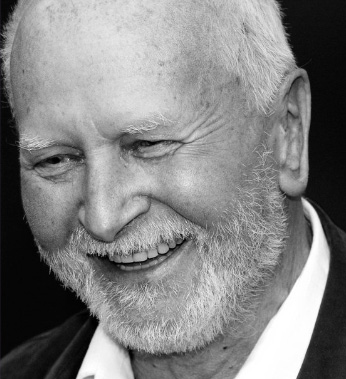
Born May 25, 1916, in Pilsen. Tenacious sportsman, psychiatrist, author of more than 140 professional publications, specialist in the treatment of alcoholism and other addictions. Introverted, systematic with great inner strength, a pioneer in the field of Czech addictionology. He studied at two universities at the same time and continued his studies in Germany during the Protectorate. His linguistic skills opened a fateful path to the first post-war conference in Brussels. It was there that he first encountered the addiction to which he decided to devote himself.
In 1948 he founded the first department for the treatment of alcoholics at the Apolinář Hospital in Prague. He did not like the fact that society looked down on alcoholics when they got into trouble because of their addiction. He felt the need to protect them, and so a unique institution in the world at that time was established in Bohemia - the protective ward known as “Záchytka”. He also founded “KLUS” - a club of people who were striving for sobriety.
Jaroslav Skála has adopted an almost paramilitary regime in his treatment. "It is not necessary for patients to like me, but to be useful to them," says Jaroslav. "Addicts can't take responsibility for themselves or others. Jaroslav Skála took that responsibility upon himself and fought his addiction.
And he wasn't alone. He worked with Arnoštka Maťová, who also became his partner. With her gentle, sensitive nature, she balanced Jaroslav's spartan upbringing. Jaroslav Skála never overestimated his role. He was direct and sensitive. He taught patients who were ashamed of their addiction how to find meaning in life, how to take the future into their own hands so that life would be more welcoming to them.
In addition to addictionology, Jaroslav Skála also worked intensively in the field of psychotherapy. Together with PhDr. Eduard Urban and MUDr. Jaromír Rubeš, he founded a five-year training course in eclectic psychotherapy and supported the establishment of training in family therapy and PVŠPS.
In 1994, together with PhDr. Magdalena Frouzová and Prof. Jiří Heller, he founded the Skála Institute - an institute for integrative psychotherapy, which traditionally pays special attention to the therapy of addictions of all kinds.
PAVEL
HARTL
Doc. PhDr.
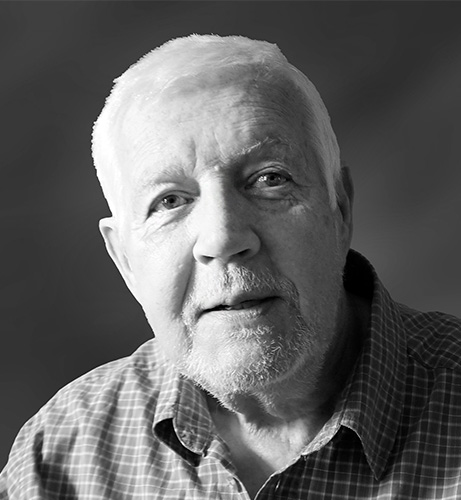
University lecturer, psychologist and psychotherapist. His main areas of interest were educational psychology, social pathology and group psychotherapy. He became one of the pioneers of community-based addiction therapy in the Czech Republic. He was the inspiration and one of the first consultants and supervisors in the establishment of the Czech association SODA, which began to train psychotherapists to work with addicted clients.
His path to education was hindered by his participation in the scout movement, for which he was briefly imprisoned in 1949. However, he continued to uphold the values of scouting in his life and work. He himself was trained by SUR, whose training groups he also led. He worked at the Penitentiary Research Institute, where he worked with prisoners. From 1968 he worked at the Faculty of Philosophy at Charles University, where he lectured on social pathology and educational psychology. In 1989 he was one of the organizers and founding members of the Department of Social Work at the Faculty of Philosophy. In the 1990s he lectured and published in foreign universities (UK, USA) and led an international interactive seminar at the Fielding Institute in Santa Barbara. Towards the end of his career (+2020) he worked on the interpretation of psychological concepts. His publications include: The Art of Conversation (1997), The Civic and Therapeutic Community (1997), The Dictionary of Psychology (1993, 2000, 2015), The Great Dictionary of Psychology (2010).
MAGDALENA
FROUZOVÁ
PhDr.
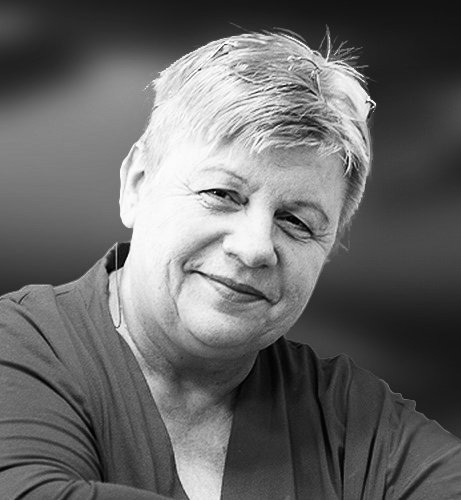
Clinical psychologist, university lecturer, mentor, supervisor and forensic expert. She worked at the Psychiatric Hospital in Bohnice, later as director and chief psychologist of the Marriage and Relationship Counselling Centre. She has had her own private practice for many years. She was a member of the board of the Society for Addictive Diseases and is still a member of the board of the Psychotherapeutic Society of the Czech Psychotherapy Association. Currently, in addition to her private practice, she is a member of the board of the Czech Institute for Supervision.
In 1995 she founded the Skála Institute together with Doc. MUDr. Jaroslav Skála and Jiří Heller. She led the Skála Institute as its professional director until 2023.
Thanks to her work, the Prague Skála Institute became an internationally respected institution and a recognized member of SEPI. In 2018 she received the SEPI "Arnkoff and Glass Award for Regional Network".
She has always ensured that the training of new psychotherapists reflected developments in psychotherapy and kept the training up to date. She has also brought creative and innovative approaches and insights to the training through her exceptional teaching skills and willingness to share her knowledge.
She is currently running a specialization course in Integrative Psychotherapy and providing expertise to some of the training communities.
JIŘÍ
HELLER
Prof.
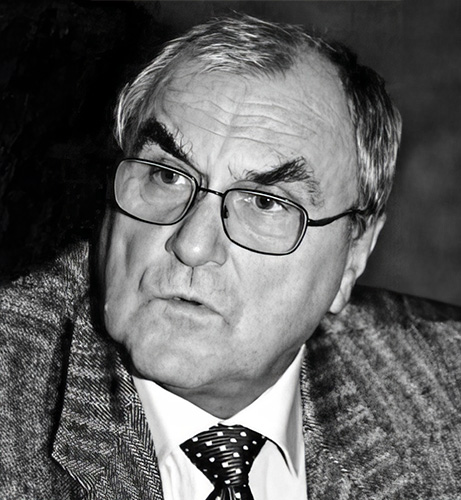
Promoted teacher. One of the most important figures in the field of psychotherapy for women addicts in the Czech Republic. Because of his opposition to the occupation of Czechoslovakia in 1968, he was dismissed from his position as a researcher. In 1970, Jaroslav Skála hired him as an orderly and soon recognised Jiří's therapeutic, communicative and conceptual skills, as well as his extraordinary diligence. He entrusted Jiří with the construction of the first specialised hospital for the treatment of female addicts in Lojovice, which Jiří managed from 1971 to 2002. Jiří Heller then returned to Apolinář.
After 1989, together with Magdalena Frouzová, he founded the Skál Institute (originally the Institute for Training in Addiction Psychotherapy), where together they led at least ten five-year therapeutic communities between 1990 and 2014. Until his death (+2021), he ran a psychotherapy clinic where he was involved in relationship and addiction counselling. He taught his students and clients the art of living life with joy. He was an example of how to live in humility towards life and the world.
SODA AND THE ESTABLISHMENT OF THE SKÁLA INSTITUTE
SODA was an association founded by Jiří Heller, Magdalena Frouzová and Vladimír Pohl. The association was set up to provide training in treating addicted clients. The training was based on community principles. The structure of the training was inspired by research that demonstrated the effectiveness of using techniques from several psychotherapeutic orientations (eclecticism) in the treatment of addiction.
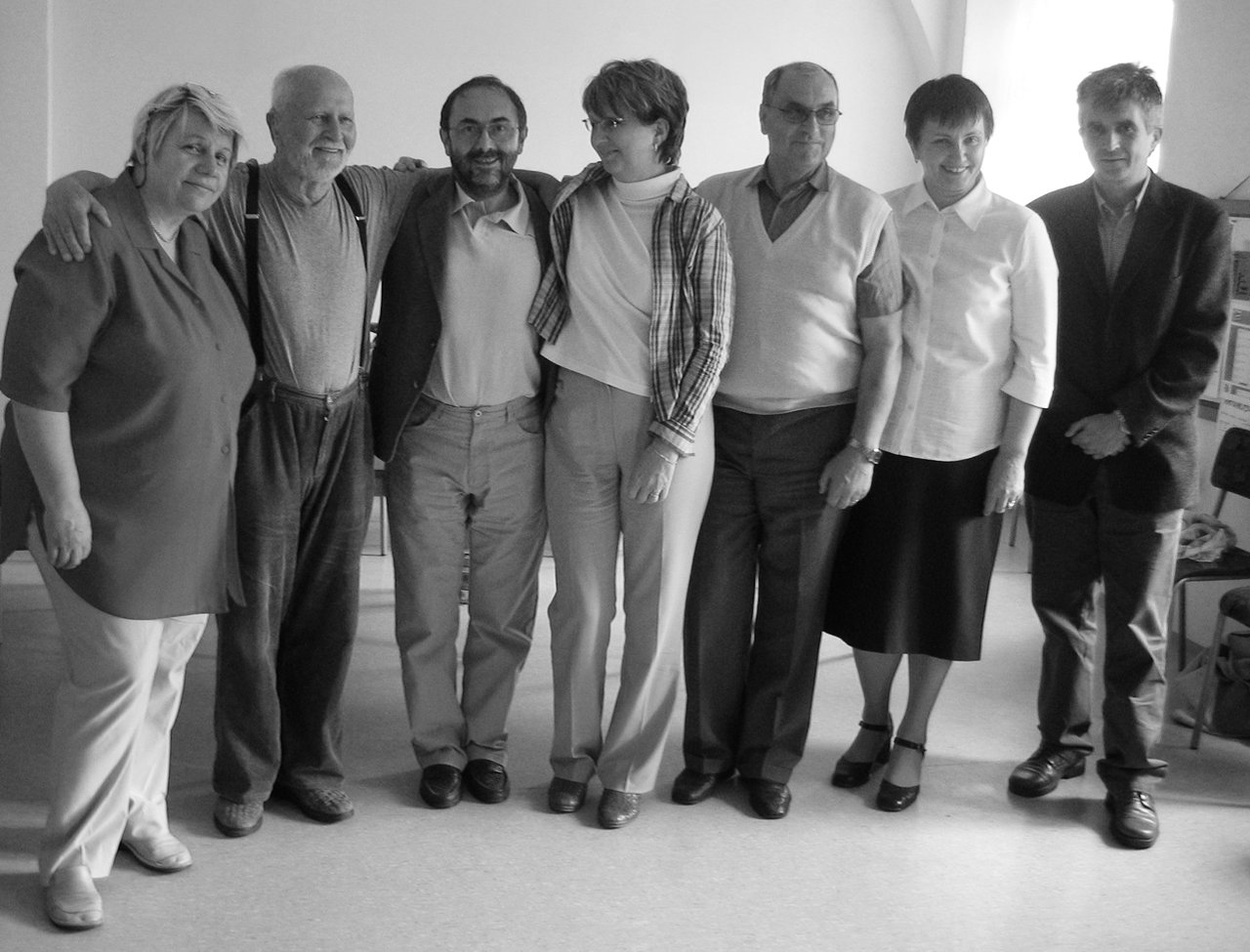
In the following years a number of well-known persons and often students of PhDr. Frouzová and Prom. Ped. Heller.
Among the important personalities of the Skála Institute were MUDr. Jan Flídr, MUDr. Judita Strašrybková, PhDr. Jan Šikl Ph.D., PhDr. Jiří Broža, PhDr. Šárka Bezvodová, PhDr. Zdeňka Kolářová, MUDr. Jaroslav Matýs, Mgr. Daniel Dvořák, PhDr. Ludmila Haňková, MUDr. Miroslav Sekot, MUDr. Alena Večeřová Procházková and others.
In 1993-1994 the SODA team leaders underwent special training in psychotherapeutic integration in addiction treatment under the guidance of Dr David Deitch from the USA.
This training was the impetus for the change of course from eclecticism to integrative psychotherapy. Jaroslav Skála lent his name and in 1995 the Skála Institute was founded - the Institute for Integrative Psychotherapy. The anchoring of the Skála Institute in integrative psychotherapy was completed with its acceptance into the world-renowned organization SEPI (Society for the Exploration of Psychotherapy Integration).
NOWADAYS
There are currently 4 training communities running at the Skála Institute and interviews for the next round are taking place.
We have successfully completed the demanding formal and content requirements for re-accreditation for both Clinical Psychotherapy in Health Care (accreditation by the Commission for Approval of Training in Psychotherapy, IPVZ, 2023) and Psychotherapy in the Helping Professions more broadly (accreditation by the ČAP, 2024). In its current form, ČAP accreditation entitles our graduates to membership of the EAP and to practice internationally.
We reflect the growing number of trainees with experience of long-term living abroad and consider the development of knowledge about 'living elsewhere' to be essential. We are constantly updating the training curriculum to reflect the evolution of the times, working with atomized, even digitized relationships and their impact on the difficulties and new issues that clients bring to our practices.
The Institute continues to be an active member of SEPI. We are looking at how we can bring the world's research to our trainees so that they can put it into practice in sessions with clients.
ETHICS
At the Skalova Institute we follow the ethical principles of the Czech Society of Psychotherapy ČLS JEP and the Czech Association of Psychotherapy. In case of ethical problems or uncertainties, please contact our Ethics Committee in writing.
Contact: etickakomise@skaluvinstitut.cz.
